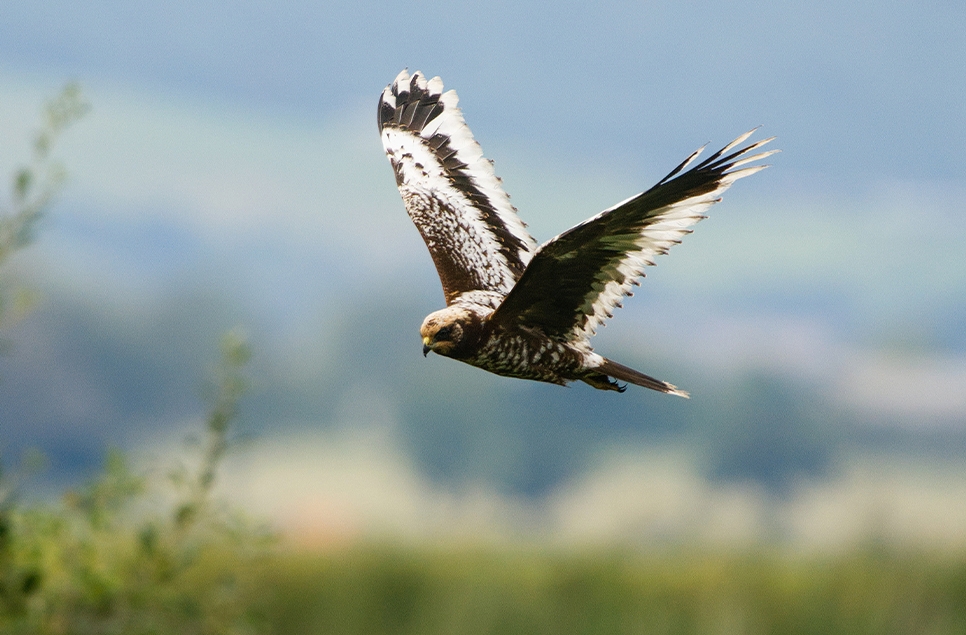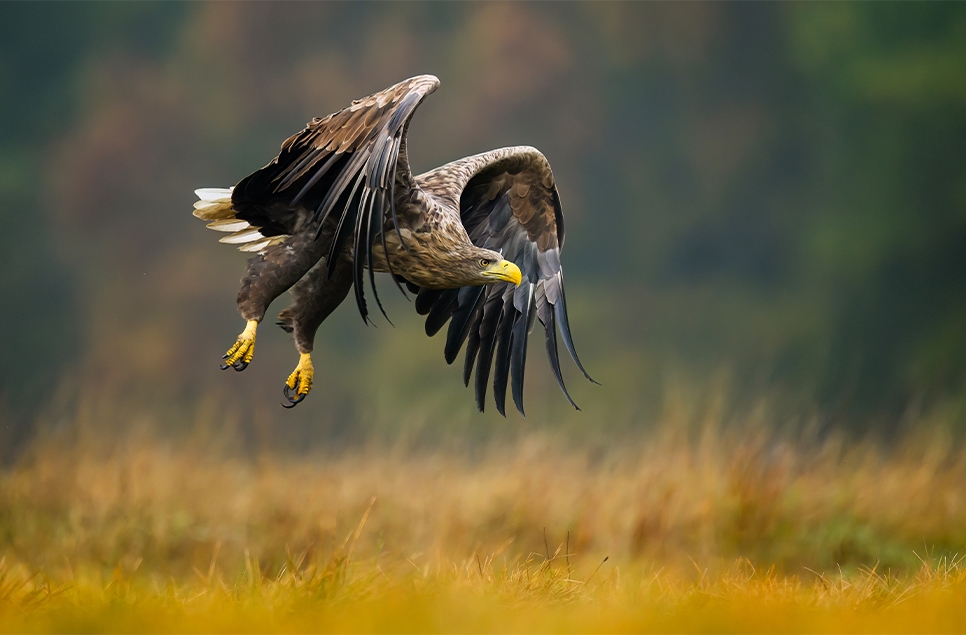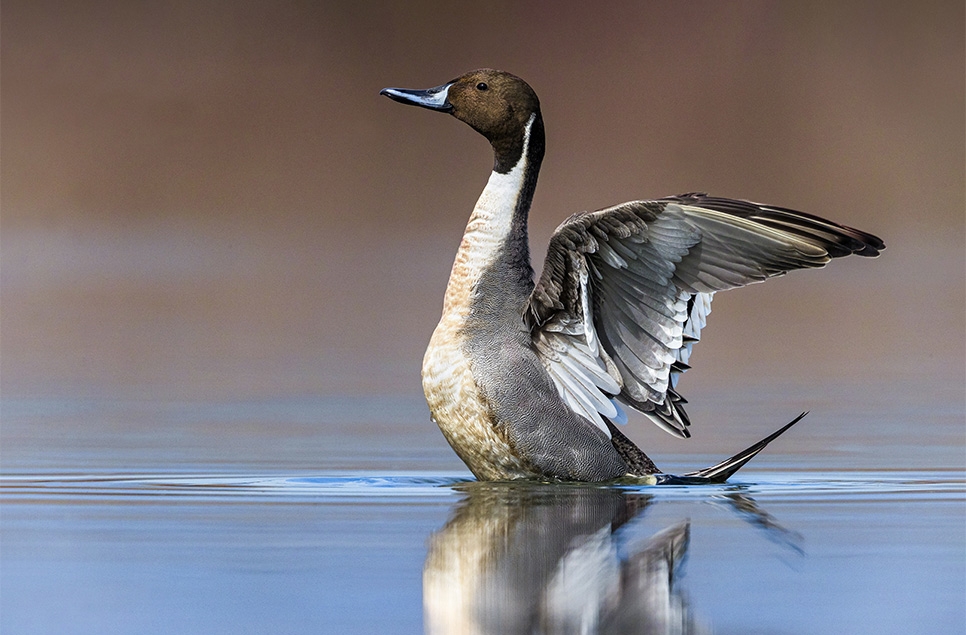Countdown to an eco-friendly Christmas that won't cost the Earth
It’s the most wonderful time of the year. Here are some great ideas to make it a wonderful time for both you and wetland nature – by having a creative, fun Christmas while keeping down your water, carbon and plastic footprints.
Eco-friendly gift ideas
- Experience-based gifts can create great memories for people you love, rather than piles of things they might not really want or need. This helps to reduce the natural resources needed to make, package and transport new stuff. Anything from a craft workshop to tickets to a concert. Check out your local WWT wetland centre for forthcoming events there as well.
- Help nature by giving someone an animal adoption or membership of a conservation organisation.
- Buy second hand – the internet is full of websites reusing good quality as-new or slightly used stuff at bargain prices, and many charity shops do the same, without the delivery impacts, also supporting a charity.
- Try making a gift – your recipient could appreciate the time and effort you’ve given as much as the gift itself, and it can be fun to make anything from jam to a bug hotel.
Look for ethical credentials –including the likes of Forest Stewardship Council (FSC) – sustainable and legal timber - or Fair Trade.
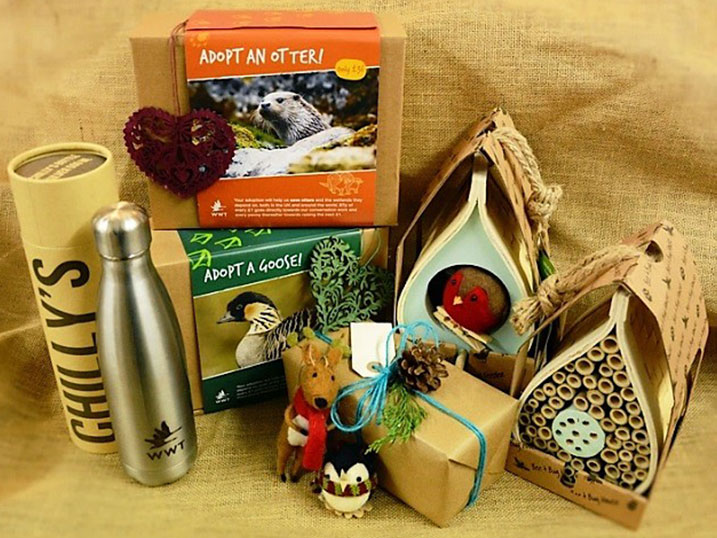
Wrapping paper and cards
- Brown paper wrapping has a simple and nostalgic feel, along with natural (plastic free) string and can be recycled, unlike shiny or foil backed wrapping. If in doubt, try the “scrunch test” – if the paper stays scrunched then it is more likely to be recyclable.
- Christmas cards – here are three ideas to reduce waste: i) Use cards without glitter or bows on, as those cannot be recycled; ii) Keep the cards to cut out shapes and pictures to make cards or gift tags next year, and; iii) Many people might appreciate being sent Ecards instead.
- If glitter is essential for Christmas sparkle, then look for biodegradable glitter – it’s just as shiny but isn’t made up of thousands of tiny bits of plastic like traditional glitters often are - those micro-plastics can be very damaging, especially for aquatic nature.
Oh Christmas tree, oh Christmas tree…
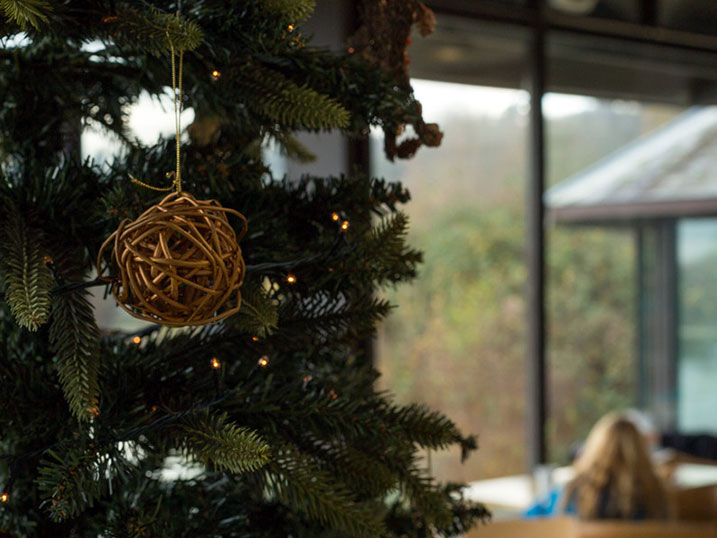
- Some suppliers now offer Christmas tree rentals – which can last a few years till they get too big, rather than being thrown away after just one year’s use.
- It’s a good thing to buy from suppliers advertising sustainability credentials - do ask them how sustainable their trees really are. Compost the tree in the new year – many councils will have local collection points – or you can plant it out if it has roots but only on your own land: birds love to nest in a maturing conifer but it can outgrow your garden so think carefully first.
- Hang edible decorations or ones made from natural materials (or try making them!), rather than plastic ones which are often non-recyclable. But if you do have much-loved old plastic decorations then it’s a sensible idea to keep using them rather than using up more resources to replace them.
Food and drink
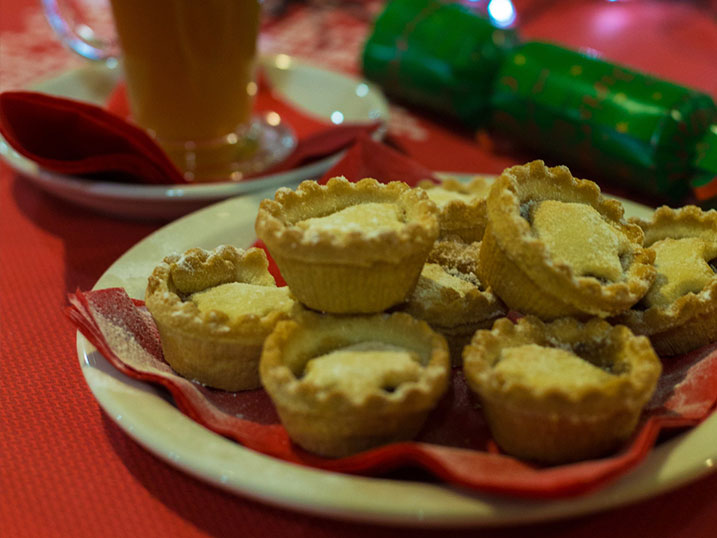
Christmas definitely isn’t a time to skimp on food and drink! But there are easy ways to minimise your impact on the planet.
Look for:
- Locally grown produce – with a lower transport carbon footprint
- Food with less or no packaging
- Organic food which avoids pesticides that can leach into wetlands
Importantly for wetlands, please, please don’t pour hot fat down drains. It can re-solidify and block them or cause water quality problems where drains spill out into rivers. Throw it in the bin (if you need to wrap it, use beeswax wraps or fabric scraps rather than plastic cling film or foil).
A vegetarian or vegan diet uses up substantially less resources and has a lower impact on climate change than meat. So if you overindulge on meat over Christmas, why not consider at least reducing your meat intake - perhaps as a new year’s resolution?
When all’s said and done
Hopefully the above has given you a few festive tips to help add to your Christmas fun.
The main message here is that wetland nature can be damaged by the amount of water and energy used in making things (and the associated carbon footprint) and by plastic waste – which is as much a problem for wetlands as it is for oceans. So the less we use, the better it is for wetland nature.
We find an eco-friendly Christmas means more, not less, of getting involved, getting creative and enjoying yourself.
Have a happy healthy Christmas – and thank you for helping wetland nature to be happily healthy too!
